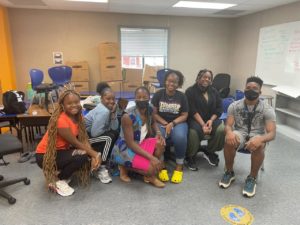The October issue of School Reform News has just reprinted an article originally printed in the Rocky Mountain News during the Democratic Convention in Denver. At a meeting in August officially titled the “Ed Challenge for Change,” our own Corey Booker, mayor of Newark, had some harsh words for NJEA and other teacher unions. In the article, Booker describes the battle against teacher unions as “a battle for the heart of the Democratic Party.”
“We have been wrong in education”, Booker said of his party and its alliances with teachers unions that put adults before children. “It’s time to get it right.”
According to this monthly published by The Heartland Institute, a rabidly anti-union, pro-school choice rag, Booker also described how he was taken into “a broom closet” by NJEA leaders who “threatened he would never get elected if he did not stop talking about expanding choice.” Among the other up-and-comers at the meeting was Michelle Rhee, Washington D.C.’s school chancellor, who is currently fighting the DC teacher union for the right to award merit pay to outstanding educators.
What a heartening contrast to the game of charades underway in Trenton, where Corzine and his hacks at the DOE seem rattled by even a shadow of resistance from the mighty NJEA. Booker blogs regularly
and seems to make a point of highlighting the achievements and initiatives at the many charter schools that make up an increasingly large part of Newark’s troubled school system. His blog entry on the meeting in Denver references a new group, The Education Quality Project, whose signatories include not only Booker, but also Michael Bloomberg, Al Sharpton, Newt Gingrich, Henry Cisneros, Joel Klein, Michelle Rhee, Al Sharpton, and, heaven help us, John McCain.
Here’s their Mission Statement:
The Education Equality Project is a non-partisan group of elected officials, civil rights leaders, and education reformers that has formed to help ensure that America finally brings equity to an educational system that, 54 years since Brown v. Board of Education, continues to fail its highest needs students. The project will take on conventional wisdom and the entrenched impediments to real reform, focusing on teacher quality and pay; accountability for results; and maximizing parents’ options. It will also challenge politicians, public officials, educators, union leaders, and anybody else who stands in the way of necessary change. This means challenging laws and contracts that preserve a system that fails students. The one measure of every policy, regardless of the depths of its historic roots or the power of its adherents, must be whether it advances student learning.
Education reform makes for strange bedfellows.


